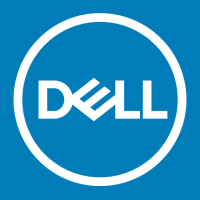Smart Brands Leveraging The Power of Big Data: Q&A With Boyden’s Tamer El Naggar
Big data has become one of the buzziest words in the world of brands. In the digital age, everything around us just screams “data”. Brands, today, have access to advanced technologies allowing them to leverage big data and extract insights and better promote their brand with their target audience and enhance their decision making. Yet, in the face of an enormous amount of data, it is often difficult to filter out the right signals from the noise. Brands will be able to act smart by leveraging the power of big data, taking the analytics to a whole new level. The Berries interviewed Tamer El Naggar, Managing Director of Boyden MEA, to get his acumen on how can brands extract value out of Big Data .
BB: A significant change to strategic brand management has taken place as consumer trends drastically evolve. The large increase in customer interactions with brand touch points has created a huge amount of data. What are the opportunities and challenges that brands face due to this data revolution?

TEN: We are living a mega data revolution with millions of data points depicting the emotions and behaviors of each consumer. The digitization of consumer interface with any given brand from brand exposure, reaction to behavior creates a profound understanding of consumer connections with the brand. This spectrum of data does create a new brand management reality.
This expanded understanding creates room for better and deeper insights to build consumer-brand connections. Based on several decades of consumer research, we know that people do not relate to brands only on functional levels, but there are emotional connections that consumers develop with any given brand and extends to all the manifestations of that brand: its package, its communication, its ambassadors/celebrities, its stance on social and public issues, and many other far reaching projections from the brand. This breadth of information is now readily available thanks to the consumers 24/7 online status. The information access opens the opportunity for more meaningful – and more durable – brand connections. But at the same time, it also avails this knowledge to competitors. This race to build any brand is put under the pressure of time and precedence, not to mention risking more clutter. At the end of the day, how many coffee brands can own the environment/sustainability positioning with consumers. And the more the crowd in that space, the more we need to differentiate a given brand or be forced to reposition. From an operational stand point, Brand owners need to be equipped with the resources and skill sets necessary to sail the brand in this interconnected “Matrix”.
BB: The era of Big Data has arrived, yet, few brand marketers seem to properly understand/make use of it. How can data become a brand asset that’s considered a primary source of competitive advantage and future earnings for brands?
TEN: One of the foundations of powerful branding is to identify your core target consumers. The plethora of data available enables a proper market segmentation that not only identifies the core consumers, but what are their key motivators, effective communication routes, compelling messages, ideal consumption moments and much more. The success of brands will be rooted in their ability to decipher the consumer signals and the data they continuously emit.
There is a famous Harvard Business Review article that warns “Don’t Let Big Data Bury Your Brand”. The article depicts many examples including one where data may support a short-term revenue gain (as in sales promotions) but could have a long-term damage on the brand integrity. Big data is not a replacement to sound marketing. The temptation of responding to high-paced data indications should be moderated by the need to protect the brand identity. Consumers do not appreciate a fast-changing brand, it implies unpredictability and causes alienation, just like an actress undergoing too many plastic surgeries that she soon become less familiar and ends up losing her fans.
BB: Whether launching new brands or repositioning an established brand higher than its rivals, how can big data help brand managers address the needs of customers,introduce new products & services, anticipate social changes and understand how consumers will react to various branding efforts ?
TEN: The beauty of any data is its ability to extend from describing the past or current to predicting the future. The continuous flow of data from the various consumer touch points help marketers develop an infinite set of connections between the brand actions and the consumer reactions. New brands benefit from the accumulating knowledge from other – successful and unsuccessful – brands. This construct of knowledge is expanding by the second and a globalized consumer means we can transcend some learnings across markets and cultures.
Now how can brands deliver better than its rival depends on the power and precedence of the connections it builds with consumers. A connection is a delivery against (or creating) a need, tapping into a motivation or resonating with a consumer value. As long as these connections are accurate and valid, the larger and more profitable the target segment is, and the more profound and genuine these connections are, the more likely success will be on the brand’s side.
BB: Can you give examples on brands whereas big data was able to foster a better competitive advantage for them and help them make more effective brand decisions and create a better brand culture inside ?
TEN: Until the advent of social media, only the large banks and telco’s had access to big data. The large mobile operators, such as Vodafone, have early on succeeded in creating the right market segmentation and established stronger brand connections that withstood competition and unfolding market dynamics. A top player in using big data is Amazon with its unmatched access to consumer data and analytics leveraging browsing and purchase data to profile its consumers to a powerful level. Google and Facebook lead the world in data analytics to understand consumers, integrating multiple data sets including location, connections, commentary, reactions/gestures as well as product/brand adoption.
BB: Brands Win With Personalization. How Big data can help a brand win with personalized customer solutions ?
TEN: Take our media consumption, we have transcended beyond the massive number of media channels offline and online, to more “on-demand” media consumption. We choose what we watch, where and when. This customization on our mobile devices and smart screens accentuates wider diversity and poses a challenge to marketers. If we are able to ‘follow’ consumers closely, we take the lead in profiling their motivations and drivers. In the early 2000’s, I worked on a segmentation project for a leading mobile operator with the aim to build a correlation (predictive) model between certain demographics and their telecommunication behaviors. The exercise, which was back in the early days of data analytics, helped validate some obvious connections between the users age/gender/location and their probability of using certain mobile services. What was an exciting revelation back then is drawing a predictive model between the same data set to predict their favorite music (think ring tones) and entertainment preferences (think selling movie/theatre tickets) and many more exciting profilers. The same conclusion can now be revealed using a fraction of the time and resources.
BB: One of the most critical aspects of any brand is the experience it communicates. How can brands use big data to reshape their brand experiences ?
TEN: Consumer data is not only captured using what they choose to click on their devices. Technology is now expanding to integrate motion-sensing, footfall-counting, health- capturing data. Imagine analytics from your fitness tracker (heart rate) integrating with your location data along with your ‘checking-in’ and liking data when you visit a restaurant or retail outlet. What you choose to do in a shopping mall or what you eat before a workout or how you feel – yes, feel – when you watch an advert are all detectable indicators with today’s technology. It is a matter of time before your Fitbit tells McDonald’s the best time they could text you a promotion, and your iPhone’s face scanner ‘knows’ that it’s time for your Starbuck’ caffeine fix – possibly ordering it before you blink!
Big data will not only guide the brands to shape the consumer experience, big data – along with the technology – will be able to instantly create the experience… and some brands may just tag along and ride the experience rush.
BB: In a critical thinking setup for the big data, does collecting more data lead to a better understanding of consumer behavior?
TEN: Consumers are and will become more fussy about answering data. Data is not ‘collected’, rather captured. Of course consumers have to authorize sharing their data but how many people you know check their security settings on Facebook or Google. So to answer the question, more data is not a choice rather a reality. The challenge is not to drown ourselves in data and be discerning of the brand priorities and the data connections that are more critical to the brand success.
BB: The Trust Mess: From your opinion, how can brands come up with an ethical framework when using customers data?
TEN: This is an area that still needs to evolve. We are only scratching the surface in realizing the scale of insights that big data can reveal. There’s a known story of a distressed father complaining to TARGET, the US retailer, that his teenage daughter keeps on receiving adverts for baby products. He was upset that these messages are suggestive that this unwed daughter should have a baby. A few weeks later, and after TARGET issued an apology to the father, he returned back to regretfully reveal that his daughter was in fact pregnant. Although this was merely caused by the browsing history of this unsuspecting young lady, imagine what big data can powerfully (dangerously) uncover. The moral and legal obligations of the data analysts presented by the power of big data is a debate that will have to unfold very soon.





